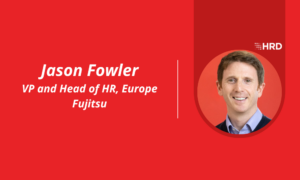Healthy, wealthy and work-wise financial security
- 4 Min Read
In this article, we navigate Mercer’s research which identifies the critical imperatives for financial security. Eve Read, UK DC & Individual Wealth Consulting Leader at Mercer explains further.
- Author: Eve Read
- Date published: Apr 18, 2018
- Categories

We at Mercer believe that it’s time to retire the term ‘retirement’…But, why?
Our recent Healthy, Wealthy and Work-wise research, conducted across 12 countries, identifies critical imperatives for financial security. The study shows that only 25% of pre-retirees are confident they will be able to afford to live in retirement. And in the UK, with the compulsory retirement age already removed, 65% of people view continued work as their solution to their personal retirement savings gap.
 Working longer, however, requires a degree of physical and mental fitness, with those surveyed agreeing that health is now vital to wealth (health was the most selected factor for a financially secure retirement). Yet only 43% profess to be in excellent or good enough health for the job they have today and are not taking the basics of remaining healthy seriously enough. The challenge for employers is to ensure that they continue to have a healthy workforce. It is increasingly important for employers to actively consider what they can do to decrease the mental strain on employees (tackling both mental and financial health) and to put in place health programmes including preventative health management.
Working longer, however, requires a degree of physical and mental fitness, with those surveyed agreeing that health is now vital to wealth (health was the most selected factor for a financially secure retirement). Yet only 43% profess to be in excellent or good enough health for the job they have today and are not taking the basics of remaining healthy seriously enough. The challenge for employers is to ensure that they continue to have a healthy workforce. It is increasingly important for employers to actively consider what they can do to decrease the mental strain on employees (tackling both mental and financial health) and to put in place health programmes including preventative health management.
Continuous personal development
Another dilemma for employers is ensuring that they continue to develop the skills of their workforce to match needs – more difficult in fast-moving industries. But there is also a significant upside to a readily available experienced workforce. In the UK we are increasingly experiencing both labour and skills shortages. Experienced workers, even if they aren’t a perfect skills match, will be a valuable source of labour. It’s important to regularly invest in developing new and existing skills within the workforce – to ensure that skills keep pace with change – and to truly think creatively about which skills might be transferable for use elsewhere in a business. However, there is still some fear of age discrimination in the workplace, with only 25% feeling confident about being able to find work or continue to work for as long as they choose to.
Retirement worries
So, what about savings? 87% of UK adults feel personally responsible for their retirement income, yet many do not take requisite actions. Various factors (stress, affordability, access and confidence in investing, age, gender and stage of life) affect people’s ability to save and invest. Currently, 45% of those surveyed indicated they have not made any financial calculations to understand their retirement needs and 87% have not consulted a financial advisor for their assistance. Worryingly, only 21% of respondents are confident that they can save enough for retirement, with 40% of females reporting feeling stress in relation to this, 10% more than their male counterparts (30%). Now whilst I may be alone in this view, I am at least partially comforted that individuals are concerned about the perceived inadequacy of their savings, because awareness and understanding can be the first step in taking action.
Despite the upcoming increases in auto-enrolment contribution levels it doesn’t look likely that the savings gap will improve without concerted effort. Especially given a number of opposing factors, including but not exclusively: the continuing impact of the move from defined benefit to defined contributions pensions; the progression of the “gig” worker economy; continued salary inequality for women and the related gender pension gap, coupled with the stagnation of wages and global economic uncertainty it leaves many individuals unable save.
The pension industry, Government, employers and individuals all have a role to play in closing the savings gap. A surprisingly large majority (82%) of our research participants trust their employer to provide sound independent advice and although many companies may not want to go this far, they can have a real impact on the financial security of their workforce through other initiatives. The employee benefits market now offers many potential solutions which can be deployed to improve the financial wellness of a workforce, improving capacity to save, ability to meet short to medium term financial goals and increased financial literacy.
About Eve Read
Eve Read is UK DC & Individual Wealth Consulting Leader at Mercer. Based in London, Eve has worked at Mercer for 18 years and is also responsible for developing and delivering Mercer’s financial wellness strategy and solutions both in the UK and globally. Eve is passionate about improving financial outcomes for all but particularly women and she co-authored Mercer’s “The Gender Pension Gap – From Awareness to Action” whitepaper. Eve is a Cherie Blair Foundation mentor and Cityparents mentor.









